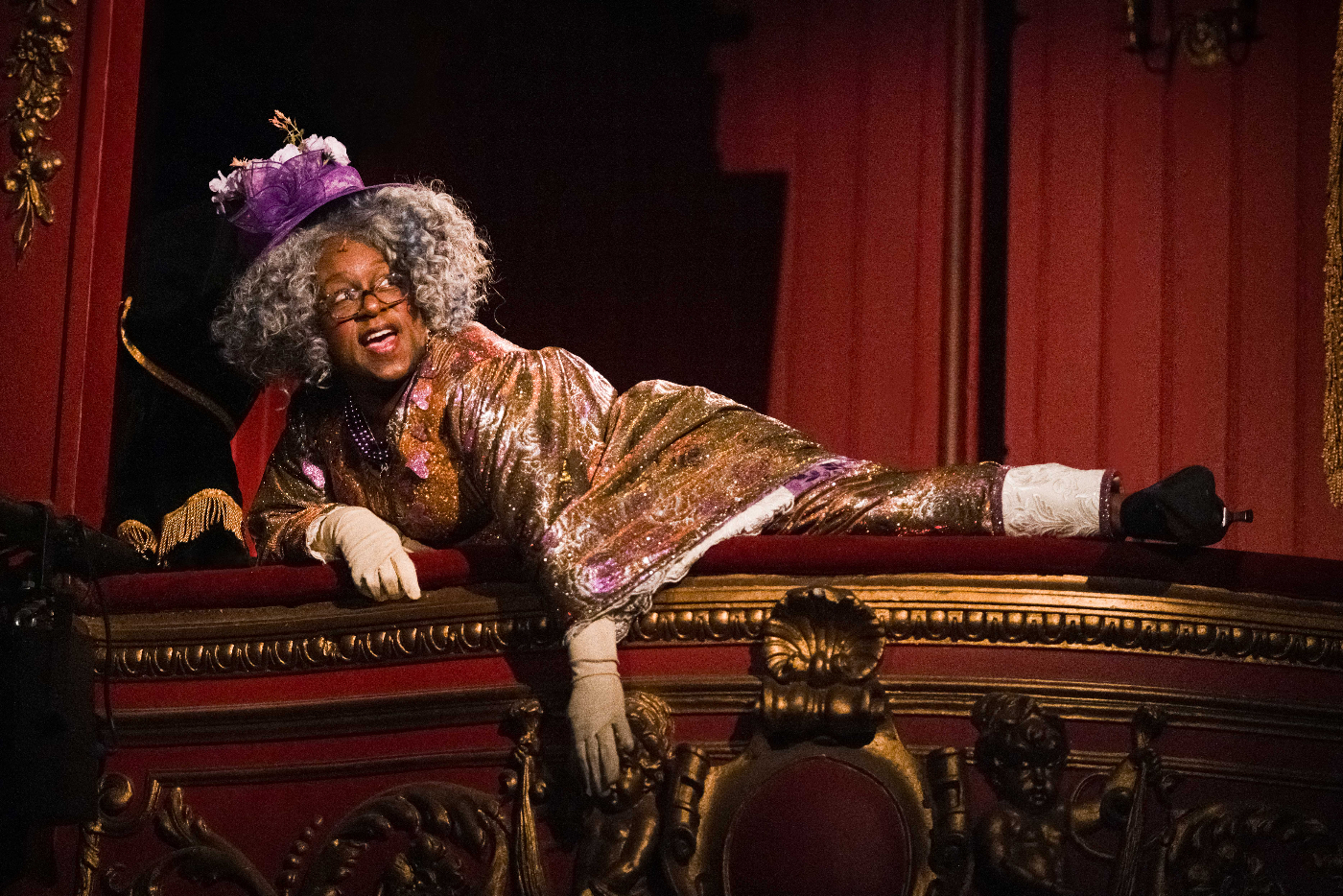Is there a healthier sound than that of laughter ringing round a theatre?
There are plenty of opportunities to test that theory in Tinuke Craig’s riotous revival of The Big Life, two decades on from its first run at this very venue. Much has changed in that time, specifically the coming to light of the appalling mistreatment of the Windrush Generation at the hands of a callous, racist state. What might have felt then like an unnecessarily heavy-handed political undertow now feels, if anything, underplayed.
If that’s the grit in the oyster, the substance of this feelgood musical is a joyful combination of winning characters, multiple romcom storylines and a tremendous score that is led by ska, but dips into calypso, gospel and blues. And it looks gorgeous!
Loosely based on Shakespeare’s Love’s Labour’s Lost, Paul Sirett’s book uses that licence to set up a battle of the sexes, incorporate a silly disguise or two and, naturally, deliver a happy ending with everyone paired off exactly as they should be.
We first meet our Caribbean carousers on a ship pulling into Tilbury all but believing London’s streets to be paved with gold. Dressed in their finest threads, the girls and boys find that their education and skills count for little when the colour of their skin is all Londoners can see. Their psychological state is told as much by their clothes as by their faces. Jasmine Swan’s costumes are initially beautifully tailored, as bright as their naive dreams, before fading to smoggy London grey and, finally, a style that reflects their status caught somewhere between their old lives and their new. The ensemble cast quickly sketch their personalities: the ladies’ man; the wannabe ladies’ man; the serious one and the on-off boyfriend. The girls are also given quick studies: the abandoned wife; the nurse; the sexpot and the on-off girlfriend. It would be easy to criticise them as types, but, if Shakespeare could get away with it, then why not Sirett?
The ensemble cast quickly sketch their personalities: the ladies’ man; the wannabe ladies’ man; the serious one and the on-off boyfriend. The girls are also given quick studies: the abandoned wife; the nurse; the sexpot and the on-off girlfriend. It would be easy to criticise them as types, but, if Shakespeare could get away with it, then why not Sirett?
You can take your pick of a favourite or two (the singing is consistently of a high standard), but I warmed to Karl Queensborough’s Lennie, the lad who found their shared commitment to forgo women and booze toughest to accept, and Ashley Samuels’ Ferdy, a would-be CLR James, whose academic ambitions are frustrated, but whose spirit never flags. Rachel John mines all the pathos from her matriarch worrying about her father back home, and Gabrielle Brooks’ feisty Sybil never lets her husband-to-be forget who is boss.
It’s a balancing act. With many audience members the grandsons and granddaughters of the West Indians portrayed, Bernie, Sybil and co have to be (dread word) relatable, with mannerisms and language imbued with period authenticity. But they must also honour the price paid, avoid any suggestion of minstreling for our pleasure and catch a mood that stops short of alienation but reflects the struggle to find a new place to call home. Played for laughs sure, but we empathise with the struggle to breathe the air in a city that begrudged and obstructed much more than it welcomed.
The lion’s share of the comic cuts are allocated to Danny Bailey as the Lothario on the make, Admiral, and Tameka Empson’s Mrs Aphrodite (pictured above), who sits in a box above us commenting on the action with the hair, and the tongue, of Dame Edna Everage. She has a word of two of advice of Cardi B and Rishi S too, bringing a contemporary feel to the quips. She also leavens the quickfire gags with a narration that fills in the context of post-war immigration, never preachy, always necessary.
The score is timeless, Paul Joseph’s tunes mining a rich Caribbean tradition, the rhythms of calypso poking through regularly. Standouts include the bluesy lament for a love sliding through the fingers, “Whatever Happened” and “The Price We Pay”, a reminder of the psychological burden of leaving friends and family across an ocean.
If some of the energy saps after the interval as the book steers its couples to their reconciliations, much of what goes before has the verve and zip of musical theatre at its most entertaining. Crucially (more so in 2024 than in 2004 I suspect) we never lose the sense of how much the Windrush Generation gave this country and how shabbily they were treated.
Nobody had it easy in post-war, austerity England, but the dull ache of an idealised and much missed home was a uniquely immigrant experience. Those heroes met that challenge and the crass slurs shouted or whispered, with the love that drove the NHS into being. They filled posts as what we now call key workers, driving buses and delivering post – much more besides too of course – keeping a bombed and broken country on its feet. This show is a fine tribute to those men and women now largely gone but, as the songs remind us, not forgotten.















Add comment